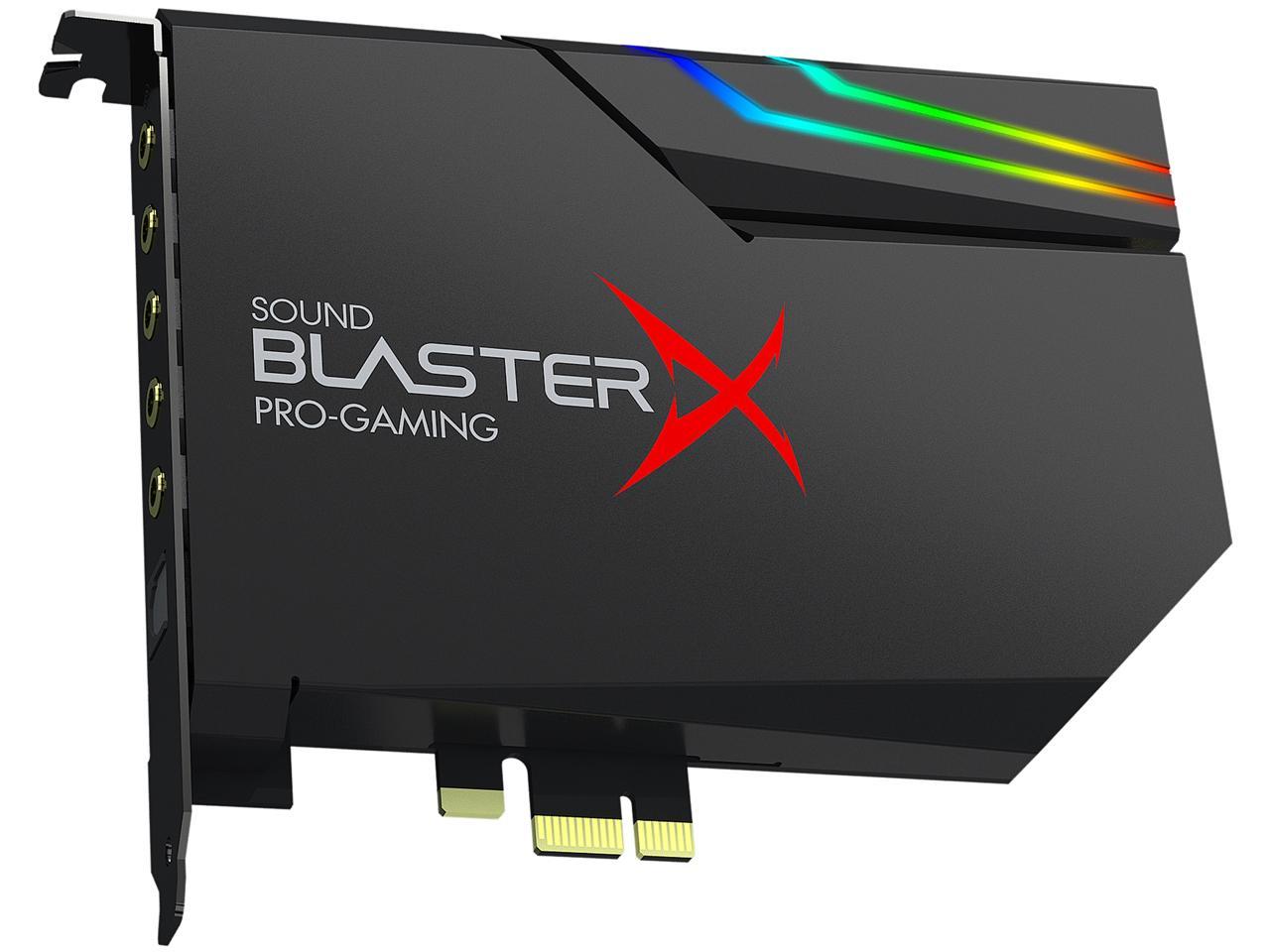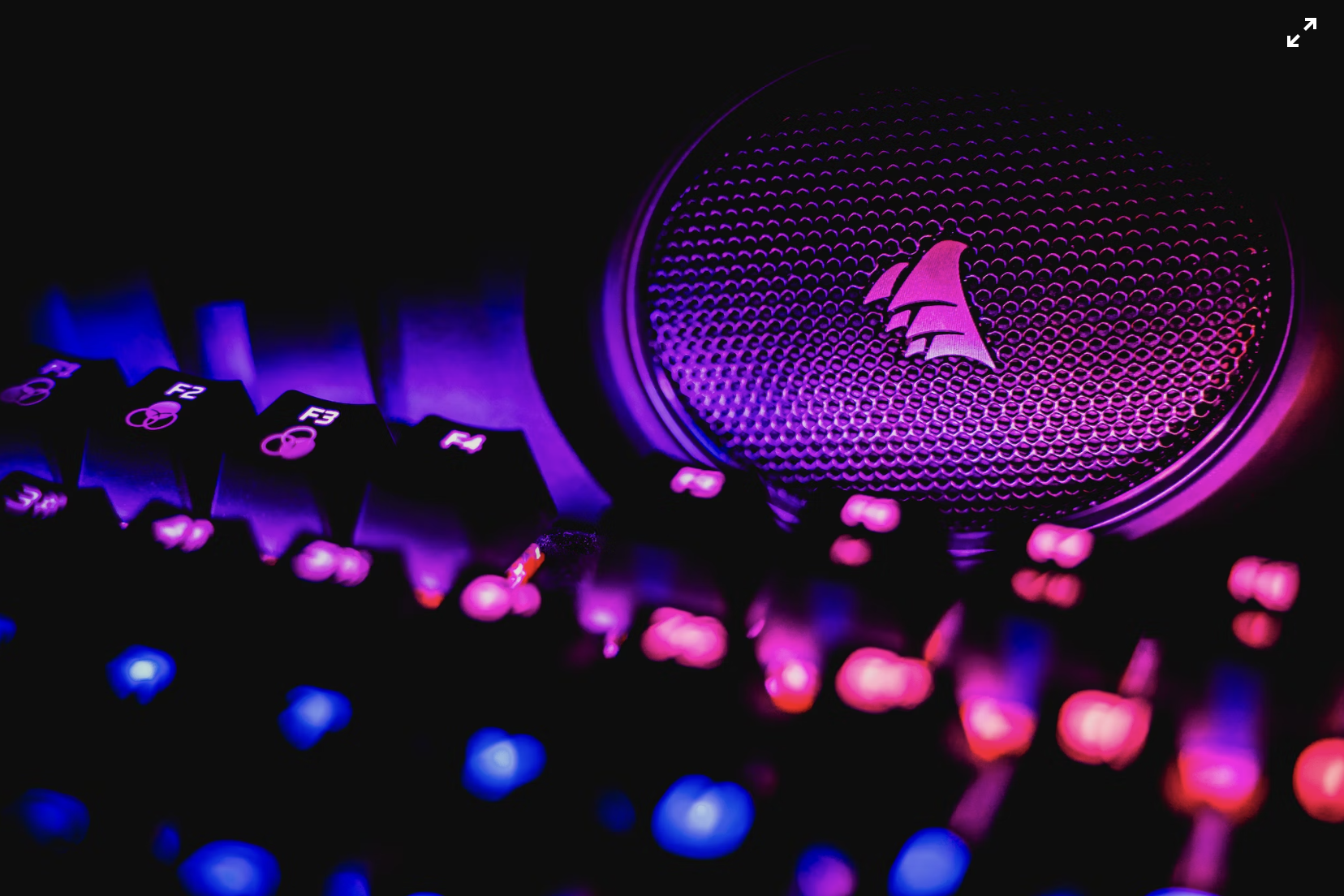Up until a decade ago, having a good sound card in your PC was necessary for achieving decent audio quality, but look at the world now, and you would rarely see anyone buy a dedicated sound card.
Whether you’re building a beastly gaming PC or an average computer in general, this article will explain the importance of sound cards in the present world and help you figure out if you need one for your build or not.
Quick Facts
| Quick Facts | |
|---|---|
| What is a dedicated sound card? | A specific piece of hardware that connects to your PC internally or externally to process and enhance audio signals. |
| Main uses of a dedicated sound card | Primarily used in professional audio projects where high quality and noiseless audio signals are needed. |
| Necessity of a dedicated sound card in gaming PCs | Usually not necessary as built-in sound cards in most gaming PCs are sufficient. |
| Decision between a sound card and good headphones | Depends on audio quality needs. For gamers, good headphones often offer better value. |
| Impact of a sound card on audio quality | A sound card can improve audio quality by reducing noise and boosting overall sound. However, its necessity depends on specific user needs. |
| The role of a sound card in professional settings | Essential in jobs requiring the highest quality of audio processing for music, movies, shows, or podcasts. |
| Cost range of sound cards | Can range anywhere from $40 to $500 or even more for premium models. |
| Conclusion | Dedicated sound cards have become less common due to built-in sound cards in motherboards, but are still used by professionals for high-end audio processing. Gamers rarely need a dedicated sound card. |
What Is A Dedicated Sound Card?
A sound card or an audio card is a specific piece of hardware that connects to your PC either internally through a PCIe slot or externally through a USB port. Sound cards once installed, take over the responsibility of processing input and output audio from the motherboard.

You will often see sound cards used in studios that require noiseless audio signals for large professional projects. A sound card contains various input and output ports, mostly in the form of aux ports but can also contain ports for connecting various other devices that transmit or receive audio signals.
What Does A Dedicated Sound Card Do?
Sound cards have one job and one job only. That is to process audio signals in a way that reduces electrical audio interference (noise) and boosts overall sound quality for the best possible results. Every built-in sound card experiences heavy interference due to electrical components and load in the computer.
Dedicated sound cards filter out this noise and prevent interference from ruining your sound quality. They can not only improve the sound coming out from your speakers but also from your headphones or the one going in through your microphone. You can slowly see how this may be extremely useful for some and not so much for others.
Do You Need A Dedicated Sound Card?
When considering a gaming PC, a sound card is usually never a priority and sometimes isn’t even on the shopping list. This is because there are other components to consider and money to spend when building a gaming PC. Moreover, the hissing noise or audio interference is barely noticed in gaming builds where loud game sounds and cinematic audio overwhelms any and all disturbances.
Most in-built sound cards that come with gaming motherboards are good enough and will do the job just fine, without you even noticing any discrepancies with the sound quality. Studios and professionals, on the other hand, have completely different needs.

Jobs where the highest quality of processing is required to produce accurate and crisp audio for music, movies, shows, or podcasts, need every bit of advantage they can get so high standards can be maintained. They can make use of the audio card’s superior processing and additional ports to connect multiple peripherals and tools with minimum loss.
So whether you need a sound card really just depends on what you plan on doing with it. For gamers building gaming PCs, you probably don’t need one and can either save the money or use it elsewhere. However, if you do anything that deals with the production or processing of high-quality audio, then getting a sound card will be an excellent investment.
Should I Get A Dedicated Sound Card or a Headphone?
A common question asked by a lot of gamers is whether they should get a sound card or a good pair of headphones. It is important to note that sound cards can cost anywhere between $40 to $500 with some premium ones costing even more than that. More or less, the same can be said for headphones too.

Having a sound card will definitely improve the audio you are hearing through your headphones but isn’t something that is absolutely necessary when it comes to gaming PCs. While most gaming headsets don’t completely eliminate noise they still do a pretty good job of outputting high-quality sound with minimum noise.
Furthermore, pairing cheap headphones with a good sound card will still limit your audio experience to the quality of your headphones. So you either buy both if you can afford them or you simply buy good headphones. They will provide you with a competitive edge if you’re into Esports and will enhance your overall experience without needing to spend hundreds on the latest sound card.
Conclusion
Dedicated sound cards have slowly become obsolete with the introduction of built-in sound cards in motherboards, and used mostly by professionals for high-end audio processing. Gamers will rarely ever need a dedicated sound card as modern gaming headsets and sound systems do just fine.
We hope this article helped you understand the significance of a dedicated sound card in the present day, especially when it comes to gaming PCs, and helps you decide if you need one for yourself or not!
Sound Card FAQs
Does a dedicated sound card make a difference?
Yes, a dedicated sound card can make a difference in audio quality. It processes audio signals in a way that reduces electrical audio interference and boosts overall sound quality. However, the extent of this difference varies, largely depending on your audio needs and the quality of your audio equipment.
Who needs a dedicated sound card?
Dedicated sound cards are mostly needed by professionals who work with audio production or processing, such as in music, movies, shows, or podcasts. These fields require the highest quality of processing to produce accurate and crisp audio. Gamers and average computer users typically find the built-in sound cards in their systems to be sufficient.
Is a dedicated sound card better?
In terms of pure audio quality and noise reduction, a dedicated sound card is typically better than built-in alternatives. However, the “better” choice depends on individual needs. For instance, for gamers or general computer users, a good quality headset might offer better value.
Why would someone want to use a dedicated sound card?
A dedicated sound card provides enhanced audio processing, better sound quality, and less noise compared to built-in sound cards. It’s particularly useful in professional settings where high-quality, noiseless audio is required. Additionally, it can offer more advanced features and connections, like multiple input and output ports for various audio devices.
What are the disadvantages of a sound card?
Some potential disadvantages of a sound card include its cost, which can be significant, particularly for high-end models. It also requires an available slot in the PC for installation, which might be a problem in compact builds. Furthermore, for most non-professional users, the improvement in audio quality might not be noticeable enough to justify the cost and potential complexity of installation.



